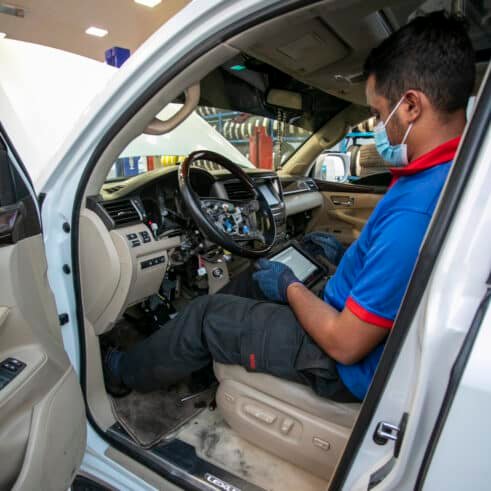Common Causes of Car Electrical Failures and How to Avoid Them
Introduction
We’ve all been there—getting ready to head out, only to find that the car won’t start or some electrical system isn’t working properly. Electrical problems in cars can be a real headache, but knowing what usually causes them can help you prevent these issues before they leave you stranded.
Common Causes of Car Electrical Failures
Battery Issues: One of the main culprits behind electrical problems is the battery. As your battery gets older, it starts to lose its ability to hold a charge, especially in hot or cold weather. This can lead to problems starting your car or powering its electrical systems.
Loose or Corroded Connections: Over time, the electrical connections in your car can become loose or corroded, disrupting the flow of electricity. This is especially common in older cars where the wiring has seen better days.
Faulty Alternator: The alternator plays a key role in keeping your battery charged and your car’s electrical systems running while you’re driving. If the alternator starts to fail, your battery can drain quickly, leading to electrical failures or even leaving you stuck with a car that won’t start.
Blown Fuses: Fuses are designed to protect your car’s electrical circuits from damage. When a fuse blows, it can cut off power to specific systems, like your headlights or radio. This is usually a simple fix, but it’s important to figure out why the fuse blew in the first place.
Malfunctioning Sensors: Today’s cars are packed with sensors that keep track of everything from engine performance to tire pressure. If one of these sensors fails, it can send the wrong signals to your car’s computer, causing a variety of electrical issues.
How to Avoid Car Electrical Failures
Regular Battery Maintenance: Keep an eye on your battery, especially if it’s more than three years old. Check for corrosion on the terminals and clean them if needed. If your battery seems weak, consider replacing it before it leaves you stranded.
Check Connections: Every so often, take a look at your car’s electrical connections to make sure they’re tight and free of corrosion. If you find any loose connections or signs of corrosion, take care of them right away to avoid bigger problems down the road.
Monitor the Alternator: If you notice your headlights dimming or hear strange noises while driving, your alternator might be on its way out. Get it checked by a mechanic before it causes more serious problems.
Replace Blown Fuses: If a fuse blows, replace it with one of the same rating. But if the new fuse blows quickly, there might be a deeper issue that needs to be looked at by a professional.
Keep an Eye on Sensors: Since modern cars rely on sensors for so much, it’s a good idea to have them checked during regular maintenance. This can help you catch small problems before they turn into big, expensive repairs.
Conclusion
Car electrical problems can be annoying, but they’re often avoidable with a little bit of regular maintenance. By taking care of your battery, checking your connections, and keeping an eye on your alternator and sensors, you can keep your car’s electrical systems running smoothly and avoid those frustrating breakdowns.






